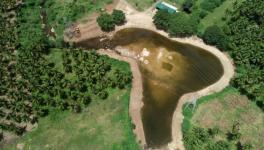COVID-19: Threat of Community Spread in Chennai, Recovery Rate High in Tamil Nadu
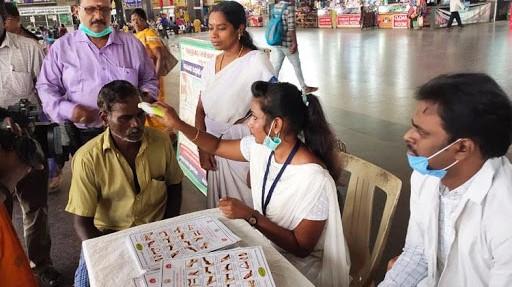
Image Courtesy: DD News
The response to COVID-19 by the Government of Tamil Nadu is a mixed bag. The containment plans have not yielded the desired result, but the recovery rate is an appreciable factor. For the one week period from April 24 to April 30, the state saw a total of 640 positive cases against 506 discharges. Seven deaths were reported this week, taking the total deaths to 27. The recovery rate has been attributed to the reasonably strong public health system prevailing in the state.
However, the increasing number of cases, in spite of the lockdown for almost 40 days remains a case of concern. The spike in the number of cases in the state capital, Chennai, has also raised alarms. Meanwhile, Nilgiris, Erode and Karur districts have zero positive cases as on April 30.
PUBLIC HEALTH CARE SAVES FACE
The state has 24 government medical colleges with six more expected to start functioning from the academic year 2020-21. This has come handy, though with limitations, in countering the pandemic.
The infrastructural development has been made possible through the sustained struggles from various sections of the society including doctors and healthcare workers. The Federation of Government Doctors’ Association (FOGDA), a few months ago, took out a strike demanding reservation for government doctors in post graduate studies, promotion policy at par with Union government doctors and increasing the number of doctors to match the patient inflow.
The very government after failing to keep the promises, treated the doctors with disdain and transferred the office bearers of the association to far away locations. The same government, now is hailing the services of the same doctors. At least after the pandemic is contained, the state government should ensure the demands of the doctors are met, which would only strengthen the public healthcare system.
HIGH RECOVERY RATE
Amid the complaints of lack of necessary protective measures for the healthcare workers, the state has recorded a high percentage of recovery rates. The total positive cases till March 30 are 2,323 while the recovered people amount to 1,258.
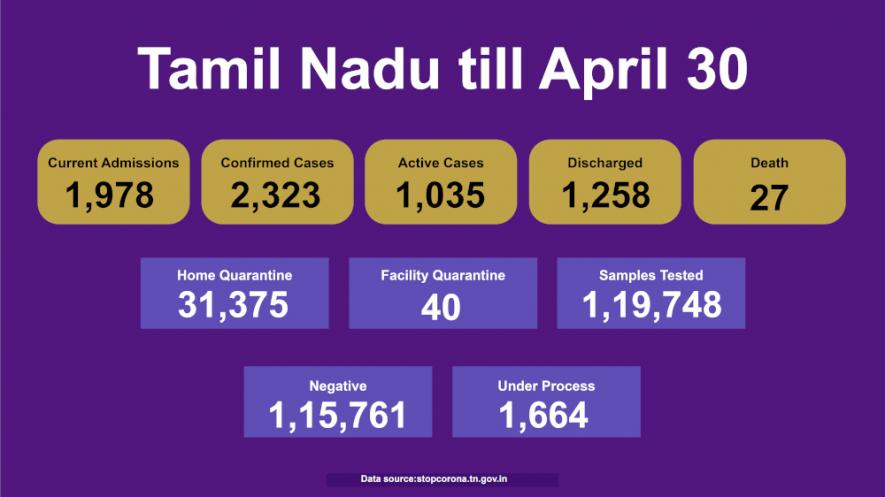
This leaves the number of active cases at 1,035. The state has also managed to restrict the casualties to 27, i.e. a mortality rate of 1.16%. With lower testing rates initially, the state has also stepped up the same with 45 testing labs (34 government labs and 11 private labs)
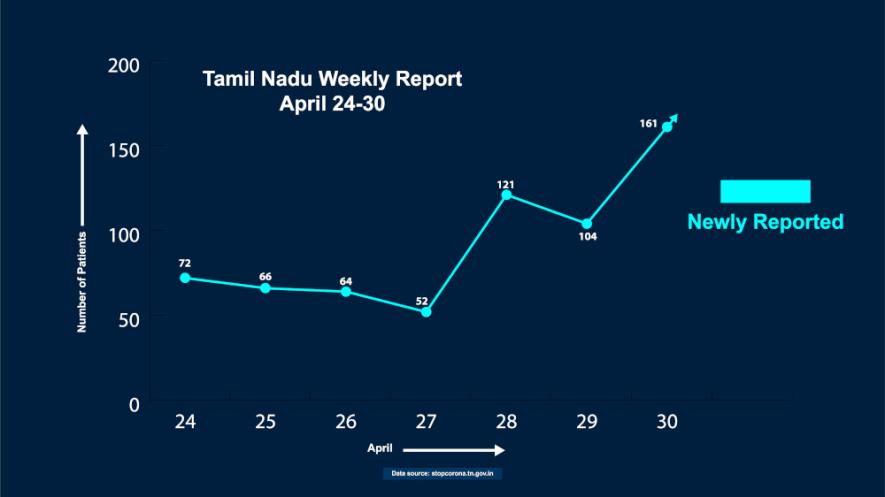
Even though doctors and other health workers have played the most crucial role to achieve this recovery rate, yet they have been targeted by the public over the stigma attached with COVID-19, with reports of doctors’ funerals being attacked.
LOCKDOWN IN MAJOR CITIES
During the last week, the number of cases have spiked considerably in spite of the lockdown and a complete lockdown in major cities for the past four days. The sudden announcement of such lockdowns have also created havoc and traffic snarls in many places.
The state government in order to sanitise the major cities announced a total lockdown varying from three to four days. Chennai, Coimbatore, Madurai,Tirupur and Salem were totally locked down all of a sudden, leading to heavy rush in essential shops. The residents of these cities, even on other days, were reportedly neglecting the call to stay at home and maintain physical distancing, increasing the risk of spread of COVID-19.
The state capital, Chennai, has accounted for a whopping 906 positive cases out of the total 2,323 cases. Out of the 906 total positive cases, the week starting March 24 accounted for 505 cases. The city corporation has identified various hotspots and implemented stringent measures, but the outcomes are against the expectations.
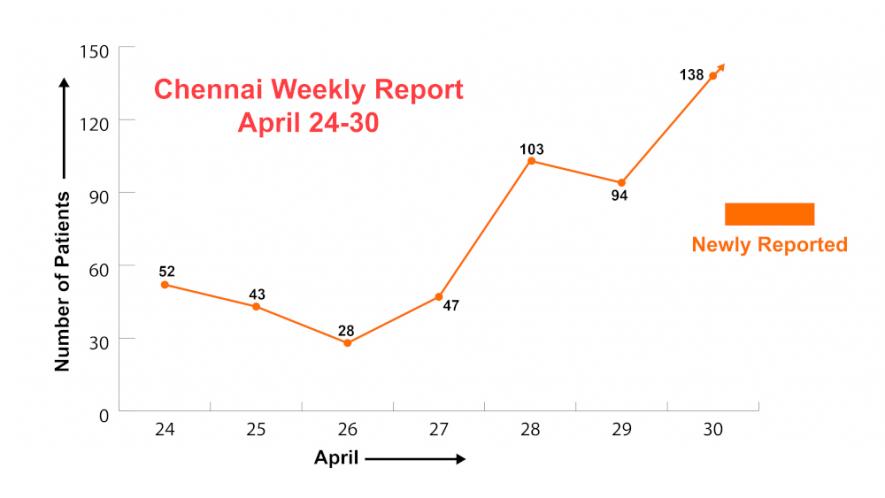
The overcrowding in the Koyambedu market, the largest in the state and people violating the lockdown norms are attributed to the steep increase of cases in the state headquarters. Several vendors and workers of the Koyambedu market have tested positive during the week.
Few police personnel have also tested positive, leading to closure of police stations in Chennai region itself. More than 35 members of media organisations were also reported positive after which the daily media briefing was cancelled.
Alarmingly, more than 90% of the patients from Chennai are reportedly asymptotic. This again increases the possibilities of further spread of COVID-19 among the community as well.
The Greater Chennai Corporation has requested all the government and private schools to hand over the buildings to the corporation before May 2, signalling the worst is yet to come.
MORE MEDICAL STAFF APPOINTED
The state government in an unprecedented move on March 27 decided to appoint more medical staff to counter the pandemic. As such, 530 doctors, 1,000 nurses and 1,508 lab technicians were appointed at a single go through the medical services recruitment board. The appointees were asked to join duty within three days of receiving the appointment orders. The government also added 200 ambulances to the existing fleet.
Considering the lockdown, the new appointees were instructed to join in their native districts itself. The appointments, though long pending to cater the needs of the health sector, have materialised only during the emergency arising due to the COVID-19 threat.
MORE ACTION NEEDED TO PREVENT SPREAD
The progress of Tamil Nadu has had its own ups and down in containing the COVID-19 threat.
The tracing of patient movements, ensuring physical distancing in essential shops and knee jerk lockdown announcements have played against the ambition of eradicating the threat. The threat of community spread remains big, with an increasing number of positive cases in small areas. The state machinery needs to be more vigilant and the growing number of asymptomatic cases calls for more rigorous testing.
(Graphics by R Prakash)
Get the latest reports & analysis with people's perspective on Protests, movements & deep analytical videos, discussions of the current affairs in your Telegram app. Subscribe to NewsClick's Telegram channel & get Real-Time updates on stories, as they get published on our website.













